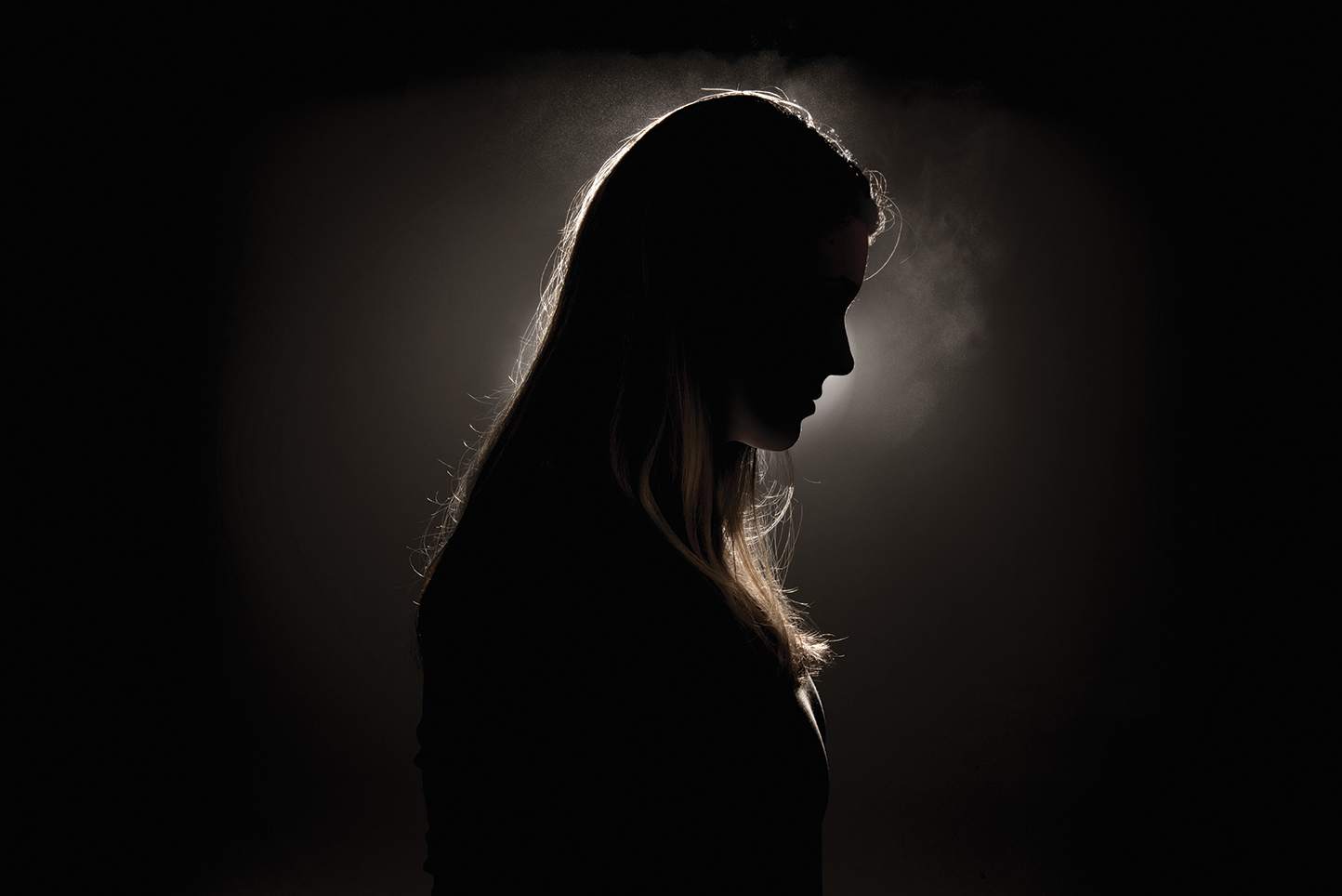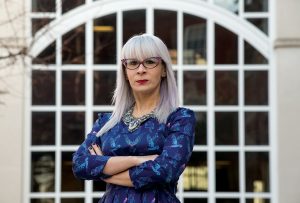When a child is sexually assaulted, there is a second victim who feels attacked at her core, who suffers and grieves but often conceals her pain. Her sense of guilt and failure is only deepened by those who are quick to ask, How could you not know?
Mothers of sexual assault victims often blame themselves while going into overdrive trying to take care of everybody else in the family. Society blames them too, said Shelly Clevenger, an assistant professor in the Criminal Justice Sciences Department who has been examining the impact of sexual assault on survivors and their families since 2013.
“These women suffered a great deal,” she said. “It was comparable to grief. All of the women had the same reaction. They never once questioned they were the ones accountable. They tried to achieve perfection because of their perception they’d failed, sacrificing themselves in the process.”
Appears InOften the mothers would not feel they had done anything to put their child at risk—until someone planted that seed and pointed out what they did wrong. Victim blaming is common in sexual assault cases, but Clevenger was shocked at how much blame the women heaped on themselves.
“It sounded like they had committed the crime, and they had nothing to do with it.”—Shelly Clevenger
She interviewed 22 mothers of sexual assault victims, asking them how the crime affected their lives, their families, and their relationship with the child. Some said they had never told anyone about the assault, and even felt ashamed talking to her. Diverse in race and socioeconomic class, the mothers were ages 28 to 65, and were from rural, urban, and suburban areas. Among them was a single mother with a high school education and a college professor with a Ph.D. Despite their differences, their pain was the same. The most common statements Clevenger heard were: “I should have seen it. I should have known.”
In the majority of cases, the biological father was the perpetrator; strangers committed only two of the assaults. Not all of the crimes were reported to law enforcement, and when they were, mothers felt victimized a second time by the criminal justice system. Sometimes, the investigating officers blamed the mothers or the child for the assault or didn’t believe them. In other cases, criminal charges were dropped, or the defendants were found not guilty.
The women abandoned their usual support systems. They didn’t confide in friends, fearing judgment. Few of the mothers sought therapy, believing they did not deserve the support because they were not physically harmed. They also didn’t want to appear “weak” or “needy,” and thought counseling would take too much time away from their children.
Instead, many of the mothers turned to anti-depressants, food, and alcohol to alleviate their pain.
The few who did seek counseling made positive strides, though one mother told Clevenger that her apparent change in outlook was only a façade. Her daughter had been raped and murdered more than a decade ago, but every day was the same as the day it happened. The difference was her pain was no longer visible to the world.
The women did not take time to grieve for their child’s lost innocence. Instead, they struggled to live up to the societal ideal of a mother who could fix everything. The women also denied themselves things they previously enjoyed. They stopped going to the gym, running races, hanging out with friends, having a glass of wine. One woman was convinced she no longer deserved a latte because her daughter had been raped.
“They felt like they were atoning for what they did. And I honestly think they felt more guilty than the offender probably did,” Clevenger said. “It sounded like they had committed the crime, and they had nothing to do with it.”
Clevenger has a Ph.D. in criminology from Indiana University of Pennsylvania, teaches a course in victimology, and also is a member of the Women’s and Gender Studies Program.
In 2016 her article “Mothers of Sexual Assault Victims: How Women ‘Do Mother’ After Their Child Has Been Sexually Assaulted” received Feminist Criminology’s article of the year award.
That same year, she was one of four academic researchers selected to present at the UN Women in New York City, the United Nations organization dedicated to gender equality and the empowerment of women. Her presentation detailed the experiences of sexual assault survivors and their families, including cyber victimization, which includes cyberstalking, revenge pornography, online harassment, and sextortion. She calls these examples of the “third victimization,” with the second being the criminal justice system, which often traumatizes victims and their families.
Only about 30 percent of sexual assaults are reported, and there were almost 63,000 reports in 2012, according to the U.S. Department of Health and Human Services. One in five girls and one in 20 boys will become a victim, according to the National Center for Victims of Crime.
Many of the mothers said they had talked to their children about “stranger danger,” but the women never thought to warn their children about their own father. Some of the mothers had been sexually assaulted as children, which added another layer of depression because they had worked so diligently to protect their child.
“They tried so hard to protect them from strangers or people around them they thought were the threat and then it turned out to be the person they married,” Clevenger said. “They felt extreme guilt, pain, and suffering. They were looking for the people who abused them. They thought that’s who they needed to worry about. You can do everything right and still have your child be a victim.”
Clevenger wanted to interview fathers of the victims, but only two agreed and they had little to say. The mothers said the men tended to isolate themselves, retreating to the basement, watching more TV, drinking, or going out. The women excused the behavior, saying they knew the men couldn’t handle it.
One mother whom Clevenger still thinks about drove an hour each way every day for 91 days, visiting her daughter who had to be institutionalized. She kept going, even when the young woman was too sedated to know her mother was there, but her husband stopped going because he could not deal with the situation.
The mothers said they became overprotective after the assault. They rarely allowed their children to go anywhere without them, forbidding sleepovers, and even deciding to homeschool. One mother wouldn’t allow her daughter to go away to college.
These families need support groups, Clevenger said. There should be separate ones for parents and siblings. Clevenger also sees the value in online communities where women can be anonymous as they support each other.
“If the suffering of these women would have been acknowledged, and they had been better supported through the process, their experience of dealing with the sexual assault of their child may have been improved and their feelings of shame, guilt, and the need for self-punishment absent,” Clevenger said.
There is another, larger issue that will take longer to remedy—society’s view of motherhood. “Mothers are supposed to have everything together, all the time,” Clevenger said. “They’re the ones who are supposed to be in charge, to know everything about the child, to protect the child, be the caretakers in almost a singular fashion where we just have the fathers almost as bystanders. When something bad happens, we always focus on the mothers, what they did wrong. We need to think about mothers not as these supernatural all-powerful beings because they’re not. We can’t protect our children from everything.”
She also knows more support is needed from the criminal justice system, and that’s what she preaches in her classes, as she urges her students to “do better” once they enter the real world.
“I don’t want them to victim blame a child who’s coming and telling them they’ve been sexually abused by their father. I tell them, ‘I need you to be better. I need this to not happen.’ I’m always encouraging my students to have understanding.”
During her four years of researching sexual assault, Clevenger conducted 79 interviews with mothers, female spouses, sisters, and female friends of sexual assault survivors, and 27 with survivors, heterosexual and LGBTQ. Growing out of this research is her next project, a long-term qualitative study of mothers who have children conceived from rape. If the assault was not reported to police or criminal charges were dropped, the rapist has visitation rights.
Of all the interviews, the ones with the mothers were the most challenging. At the time, the professor was pregnant with her first child, a daughter.
“It was very hard on me personally, but it was the most rewarding work that I’ve done. The survivors were difficult, but the mothers were the hardest. I still think about the mothers. One mom said she took care of everyone else, even the dog, before herself.”
Illinois State University is concerned about the safety and well-being of its faculty, staff, and students, and strives for a campus atmosphere free from discrimination, harassment, and violence. The University offers educational programs aimed at preventing sexual violence and provides a wide variety of resources and support services for victims of sexual assault. For more information, visit TitleIX.Illinoisstate.edu and Counseling.IllinoisState.edu/Sexual-Assault.
Shelly Clevenger’s research
Shelly Clevenger, assistant professor in the Department of Criminal Justice Sciences, has been working on a large-scale research project since 2013 to examine the impact of sexual assault on survivors and their families.
She has conducted 79 interviews with mothers, female spouses, sisters, and female friends of sexual assault survivors, and 27 with survivors. Her research interests include victimology, sex offenses, violence against women, LGBTQ victimization and queer criminology, and cyber victimization.
Clevenger served as editor and contributor for the book The Virtual Enemy: The Intersection Between Intimate Partner Abuse, Technology, and Cybercrime (2015). She also contributed to Victimology: Understanding Offline and Online Crime Through Active Learning (2018) and Teaching Criminological Theory (2018).
She received the American Society of Criminology, Division of Victimology’s Faculty Teacher of the Year Award in 2016 and the 2017 American Society of Criminology, Division of Critical Criminology and Social Justice Faculty Teacher of the Year Award for her teaching on sexual victimization, cyber victimization, and intimate partner violence. She also received Illinois State University’s Teaching Initiative Award and the Outstanding Faculty Teacher of the Year Award from the College of Applied Science and Technology in 2016.
Kate Arthur can be reached at kaarthu@IllinoisState.edu.


